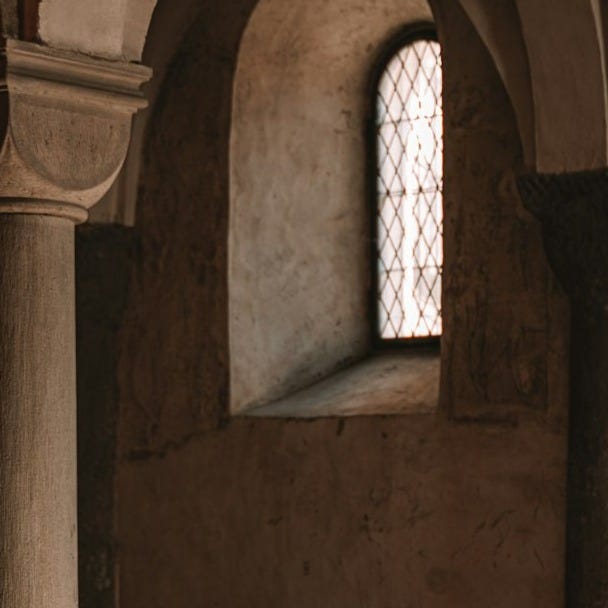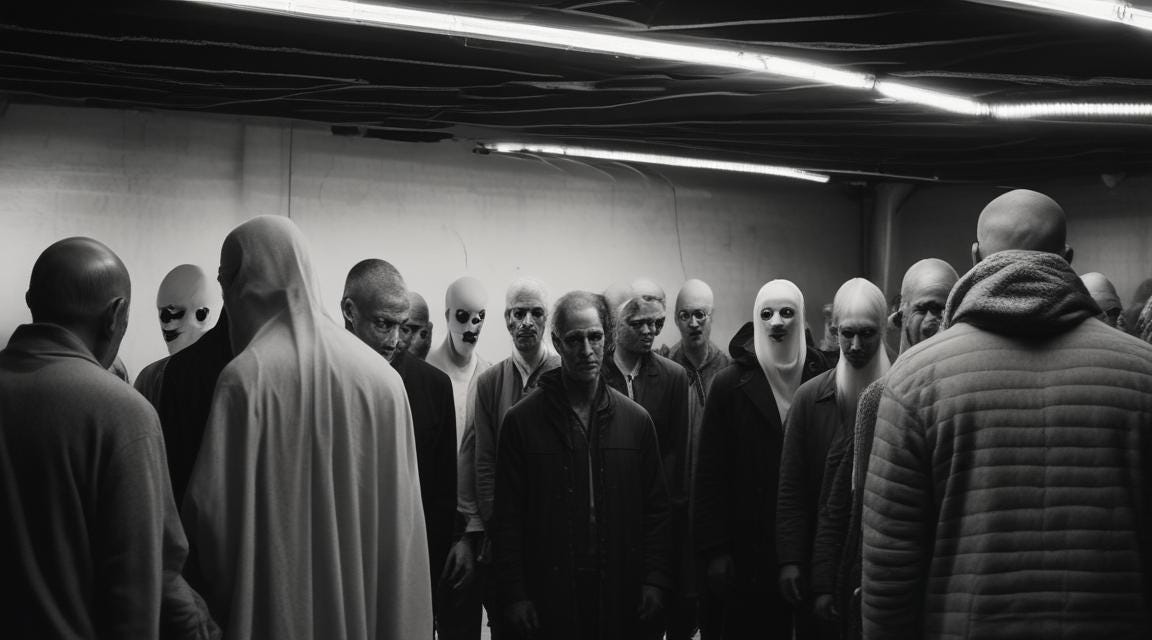The polling place is in the basement of an old church: dusty concrete, fluorescent lighting. Square windows near the ceiling reveal the gloomy weather outside.
“Oh, it’s so nice to see this place again,” Mom says. She’s walking beside me, but I don’t see her, only hear her voice in the earbud.
Because she’s dead.
“Thanks again for taking me to vote, Tommy.” She says this for like the fourth time. “I know you’d rather be somewhere else.”
“It’s okay, Mom.”
Of course I’d rather be somewhere else, like working on a project so I can pay the rent. Also, I’m cold and my feet are wet from the puddles outside.
But Mom would insist on voting. I could have gotten a Deceased Services volunteer to bring her. But by the time we thought of that and called, their teams were all overbooked. It’s a major election and, more than that, the first in which the dead can vote.
Ridiculous? Yeah, everyone would have said that a few years ago—before the Dead Rights Movement picked up momentum.
Like everything else, it started with technology—more and more people claiming to hear ghosts on their cell phones or bluetooth speakers, specters popping up on their screens. Soon, everyone was dreaming of dead people, and sensing them hanging around in the daytime.
Physicists and psychics published theories, did experiments, posted videos. Engineers got involved and built devices to facilitate the phenomena. More and more, it was accepted: the dead were visiting us.
This voting line seems stalled, barely moving. At least it’s not as long as I expected, maybe thirty people ahead of us. Of course, that won’t be the whole story. I pull out my ectoplasmic glasses and have a look. Sure enough, the living ones in the line are flanked by maybe a hundred shimmering ghosts.
Damn Dead Rights Movement.
Because the visiting deceased weren’t just visiting. They wanted things. Some demanded the preservation of lands or buildings, others brought civil suits for alleged wrongs while they were alive. Many wanted to change wills after the fact.
All well and good. But to wield real power, they needed the vote.
“Absurd,” lawyers and pundits said.
But dead activists and their living advocates persisted. Soon the political parties caught the wind.
For the politicians in power, it seemed a potential bonanza that might preserve their advantages for decades. (Sure, voter repression and gerrymandering had taken them far, but there were limits.)
Those out of power soon saw there was no way to stop this express, so they jumped on board, convincing themselves it could be a wedge issue unlike any in the history of democracy. That’s what Mom thinks. “A sea change, a Dead Tsunami to bring sweeping, desperately needed changes.”
Yeah, Mom. Right. Far more likely this will turn out to be one more trick by the elites to stay in power. Stands to reason: with dead people voting, surely any tiny chance the living might have had to take control will dwindle to nothing …
“A cynical and useless attitude,” according to Mom.
Still wearing the ectoplasmic glasses, I glance ahead. “This damn line’s not moving at all.”
“Sorry, Tommy.” The smile in Mom’s translucent face is apologetic but encouraging. “I know it’s a trial. You might not find it so frustrating if you’d been voting yourself all these years.”
“Let’s not have that conversation again, Mom.”
“Why not? Nothing better to do since we’re stuck waiting.”
Even dead, she’s a persistent optimist. I don’t bother to answer. Forty years old and I’ve never voted, never saw much point.
“If you could just see things from my perspective …”
Mom rattles on, explaining how the dead see our world, a floating sphere among vapors and clouds of light and dark. How many of them feel compelled to try to improve things for their families, for the whole human world. So many troubles on Earth, and so hard, from where they are, to affect anything.
“That’s why voting is so important to us. We see things more clearly than the living, from a higher perspective. And we’re not so easily led astray by propaganda and lies. Most of us are motivated to help the living and to protect the Earth for future generations. Can you imagine how frustrating it is, being dead and unable to influence the living world? That’s why I’m so grateful for Dead Suffrage.”
I keep my mouth shut. It remains to be seen how this vote will turn out. The polls are all over the place, and who knows if you can trust them? Personally, I’d be amazed if anything changes, if this “Dead Tsunami” turns out to be real.
Finally, after an hour and ten minutes in line, we reach the check-in table. I hand the poll worker Mom’s registration card. He scans it, then scan her image with a handheld. Mom states her name and address; an AI analyzes her voiceprint. At last, they hand me her ballot and point us to a booth.
Inside, I pull the curtain. Leaning over, I fill in the dots as Mom tells me her choices. I don’t know much about the candidates. But, I have to admit, I agree with Mom’s votes on the two ballot initiatives. One is a measure to approve subsidized housing. The other strengthens state environmental laws.
And I catch myself thinking: Mom may have a point after all. Voting might not be totally useless.
When we leave the booth, I spot sunlight slanting in through the high basement windows.
Maybe that means something.




It was a nice story. And the dead do get to decide how we live our lives and what policies we take since their decisions when they were alive still influence our lives.
Now I have an explanation as to why lines can move so slowly!